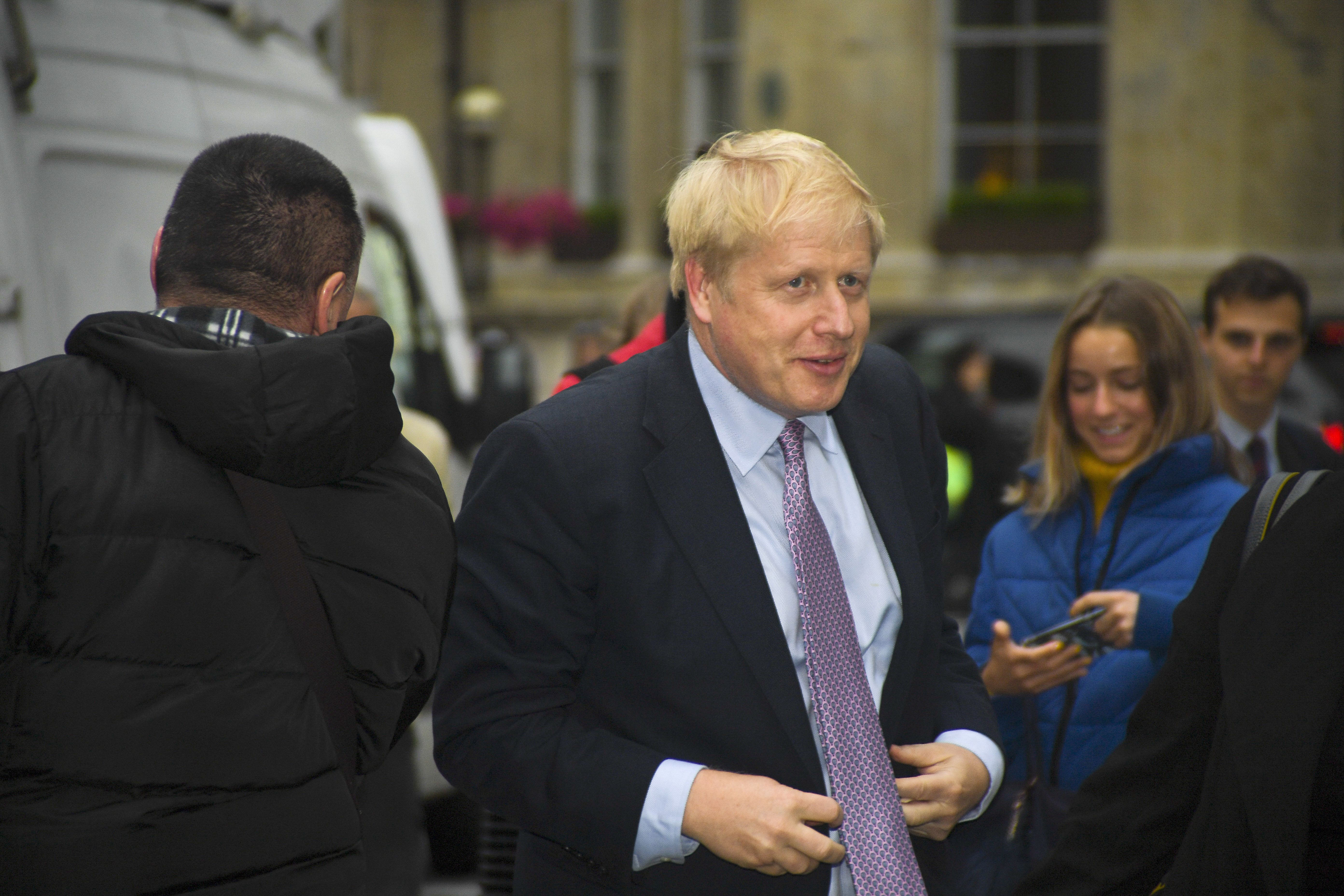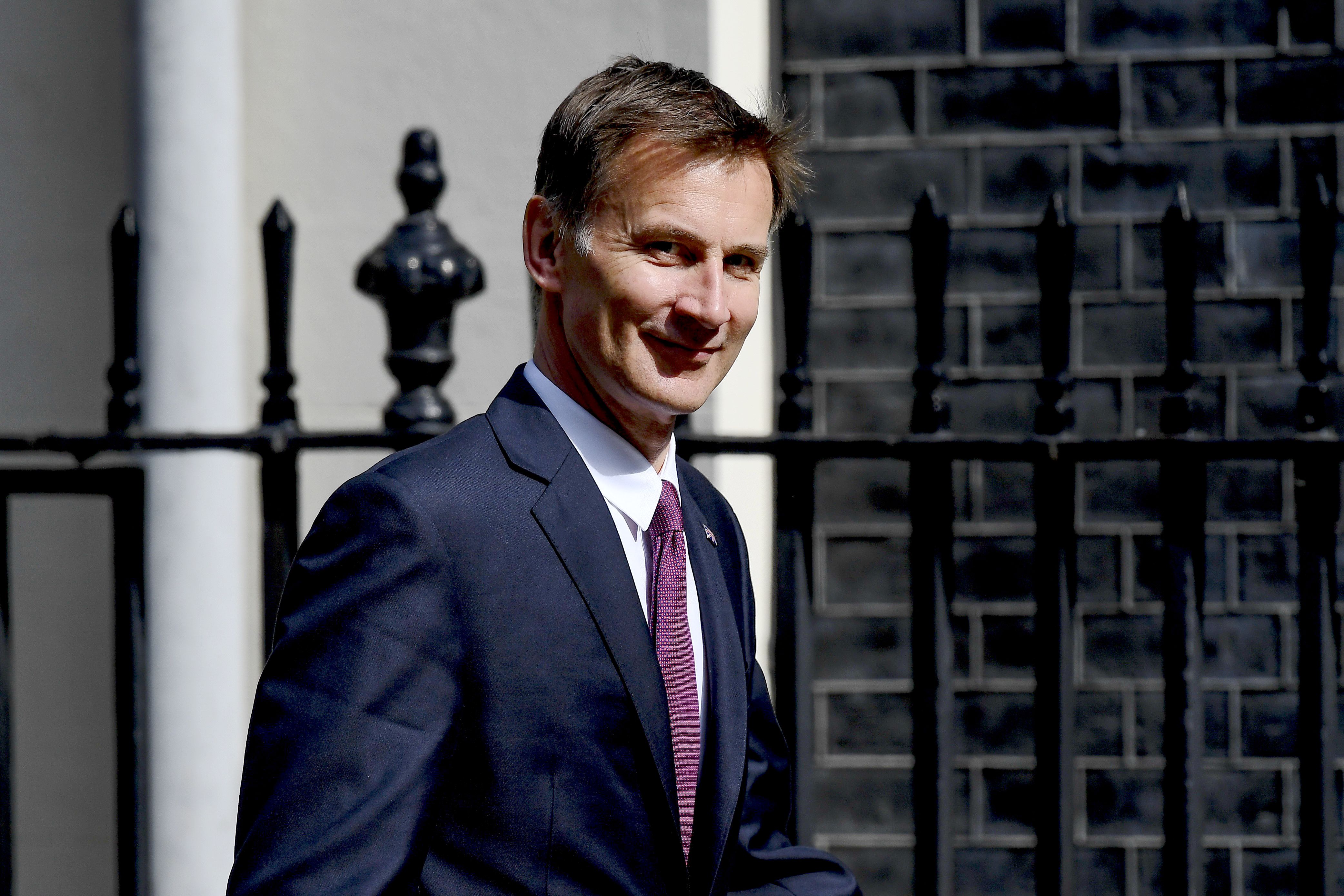Race for UK's next Tory Party leader heats up
- By Robert Griffiths
 0 Comment(s)
0 Comment(s) Print
Print E-mail China.org.cn, June 26, 2019
E-mail China.org.cn, June 26, 2019

After several rounds of voting among Conservative MPs, two men remain in the race for the Tory Party leadership and, by default, for the post of Prime Minister of Great Britain and Northern Ireland.
The favorite, after passing through the first set of hurdles, is former Foreign Secretary and ex-Mayor of London, Boris Johnson. His challenger is the current Foreign Secretary, Jeremy Hunt.
Johnson is by far the more controversial of the two candidates. He has cultivated the image of a disheveled, slightly eccentric and forgetful, but nonetheless, a straight-talking, witty and super-intelligent candidate.
Having made up his (somewhat uncertain) mind at the last minute, he campaigned for Brexit in the 2016 referendum on U.K. membership of the European Union (EU). Subsequently, he resigned from Theresa May's Cabinet because he thought she had made too many concessions to the EU in her failed Withdrawal Agreement. He then voted for that agreement in May's last desperate but doomed attempt to get it through the House of Commons and break the Brexit stalemate.
Today, Johnson's tough talk about leaving the EU on October 31 without a deal if necessary, has further endeared him to many of the 160,000 or so Tory Party members who will soon be electing their party's next leader by postal ballot. The result is due to be announced in the week beginning July 22.
But neither Johnson nor the majority of his party's members reflects the preferences of most of the large companies which traditionally bankroll the Tories. Much of British big businesses would like to see the U.K. remain in the EU if at all possible. Failing that, their fall-back position is to keep Britain aligned as closely as possible with the pro-capitalist, pro-market rules of the EU as part – directly or indirectly – of the European single market.
From the standpoint of corporate Britain and the financial City of London, the worst possible outcome would be for the U.K. to leave the EU with no economic agreement in place that commits future British governments to the free movement of goods, services, capital and labor across Europe. Playing to the gallery of many of the 17.4 million referendum voters – including a majority of Tory members and supporters – who want to leave the EU regardless of whether such an agreement operates, Johnson claims to be willing to force through a "no deal" Brexit on October 31, if necessary.
Whether he can actually do so is another matter. As Prime Minister, he would almost certainly have to suspend the House of Commons around that date. The anti-Brexit Commons Speaker, Tory MP John Bercow, has vowed to prevent that from happening.
However, it is the Queen who must give Royal Assent to any suspension of the British parliament, usually on the recommendation of the Prime Minister. Should she agree to do so, this might be open to challenge in the courts by individuals applying for a judicial review – but only on very specific grounds and at some financial expense. Wealthy opponents of Brexit have already shown themselves willing to make applications to obstruct Brexit, with limited success.
Such a course of events could turn Britain's political and parliamentary process into a full-scale constitutional crisis. Divisions in society would become deeper and more embittered.
A Prime Minister Johnson might still try one more push to get a modified version of Theresa May's Withdrawal Agreement through the Commons. Should he fail, he could call a General Election, perhaps enter an electoral alliance with the new Brexit Party, brand the Labor opposition as unpatriotic, anti-democratic and anti-Brexit opposition and win.
But it's a high-risk strategy. It also presumes that Johnson is not discredited in the meantime as more skeletons fall out of his personal closet. Tory Party members may believe that a long record of indiscipline, selfishness and betrayal in his private life should not disqualify him from the highest public office, but many voters in a General Election could take a less sympathetic view.

By comparison, Jeremy Hunt is "normal" and scandal-free. Before filling Johnson's shoes as Foreign Secretary, his spell as Health Secretary was problematic as he presided over the creeping privatization of the National Health Service in England and picked an unpopular fight with its overworked and underpaid junior doctors.
More pertinently, though, he campaigned for the U.K. to remain in the EU and wants to maintain the maximum possible alignment with the Single Market and Customs Union. Despite Johnson's links with the City from his time as Mayor of London, Hunt is probably the preferred candidate of big businesses and the ruling class establishment.
The latter could yet win the Tory Party members' ballot, do a Brexit deal with Labor's middle-ground MPs and then go on to save his own party's skin at a General Election next year.
But that depends, in part at least, on the Labor Party falling into the trap of calling unequivocally for a second referendum on EU membership and pledging to campaign to overturn the 2016 result instead of helping to enact it.
Robert Griffiths is a former Senior Lecturer in Political Economy and History at the University of Wales and currently the General Secretary of the Communist Party of Britain.
Opinion articles reflect the views of their authors only, not necessarily those of China.org.cn.
If you would like to contribute, please contact us at opinion@china.org.cn.






Go to Forum >>0 Comment(s)